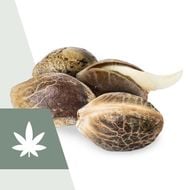
Landrace Strains: The Oldest Cannabis Strains
Landraces can be traced back many centuries to their respective continents and countries. Still, it wasn't until fairly recently that these strains were exported and became the backbone of the strains we enjoy today. So if you've ever wondered about the true origins of some of your favourite cannabis cultivars, you're in the right place. Read on to find out all about the illustrious landraces.
Serving as the foundation of many cultivars we know and love today, the term “landrace” is defined as wild-growing cannabis that has evolved and naturally adapted in the isolation and climate of a specific geographic region. These strains are hardy, robust, and take on unique characteristics that allow them to flourish in even some of the harshest environments.
It's thought that landrace strains have been around for thousands of years, with the first cannabis cultivated around 10,000 years ago in Asia. However, it wasn't until the 1960s and 70s that cannabis aficionados travelled the world to collect these strains to cultivate and create hybrid varieties back home. Since that point, landrace strains have continued to be highly sought after, and for some great reasons. So, what's so special about these plants, and where can they be found?
The origins of Cannabis sativa
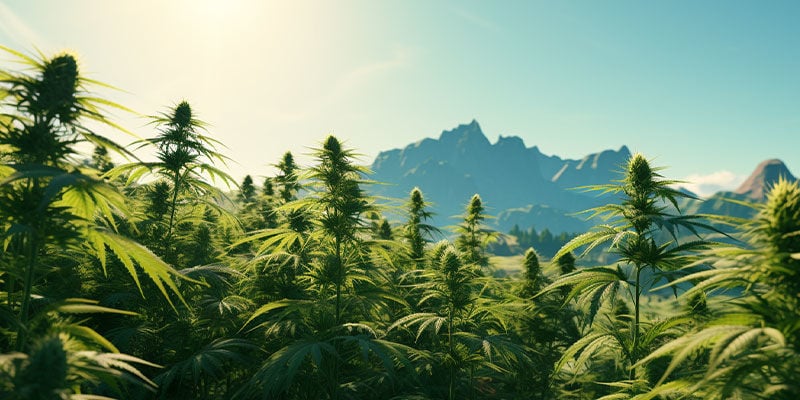
Originating in Asia and Northern Africa, sativa landrace strains have flourished for centuries in the warmth and light of regions near the equator. Many years of adaptation resulted in sativa specimens being a little on the taller side, with plants easily topping 3–4 metres. In terms of appearance, pure sativa landraces are typically known for having slender leaves and greater internodal spacing. Sativa plants are aromatic and can often be described as fruity and floral. Some popular sativa landraces of note are Thai, Acapulco Gold, Durban Poison, and Panama Red.
The origins of Cannabis indica
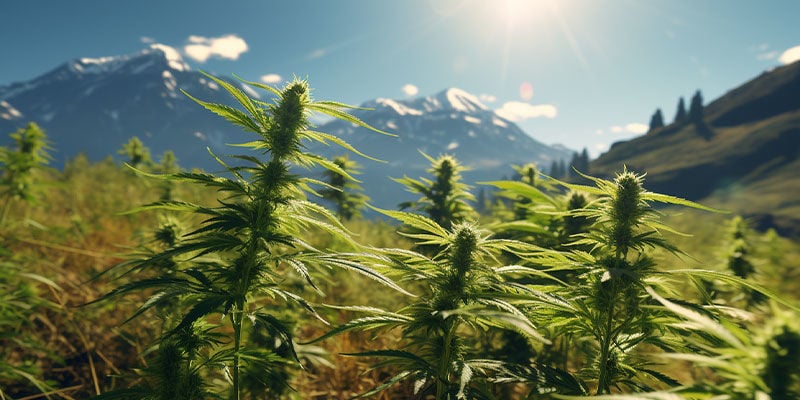
Compared to their sativa counterparts, indica landrace strains aren't as widely spread; instead, these plants are found in the dry and mountainous regions of Afghanistan, Pakistan, and India. Adapting to these harsh environments has resulted in indica landraces being more compact, with specimens reaching up to around 2 metres. Indica plants also tend to have much broader leaves, with flower clusters being much tighter and denser. The aroma of indica buds is often described as musky and earthy. As the antithesis of sativa, these plants are well adapted to growing in mild northern latitudes. Arguably two of the most famous pure indica landraces are Hindu Kush and Afghani.
Cannabis ruderalis
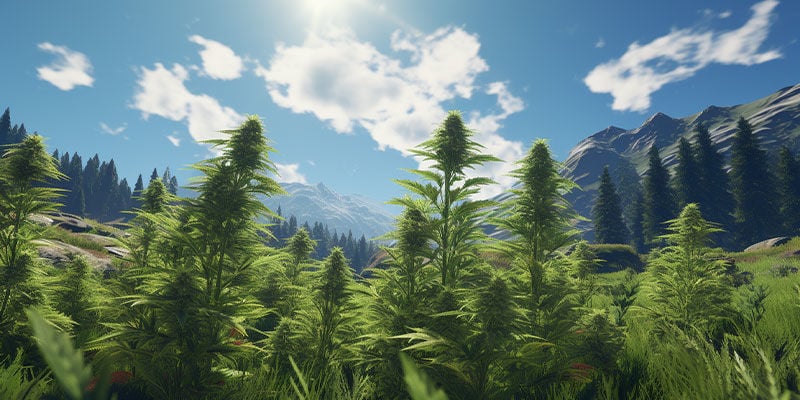
Completing our trifecta of landraces is ruderalis. This species is rooted in Eastern Europe, the Himalayas, and Siberia. As the smallest member of the cannabis family, ruderalis plants keep very low to the ground, typically reaching around 1 metre. Moreover, ruderalis is a highly resilient plant, given the harsh climates of these regions. Perhaps most importantly, ruderalis flowers automatically instead of relying on light exposure. This is because the light availability in these regions can be very scarce, so plants had to adapt in order to survive.
In recent times, breeders have cleverly harnessed this autoflowering trait to create the “magic” behind the autoflowering strains we know and love today. With such cultivars, it's possible to fully grow a plant in as little as 60 days from germination, allowing for two or more harvests per season in temperate climates.
The oldest cannabis strains
Now that you've garnered an understanding of sativa, indica, and ruderalis cannabis, continue reading to discover some of the oldest landraces that went on to become the foundation for the thousands of varieties we still enjoy to this day.
Afghani
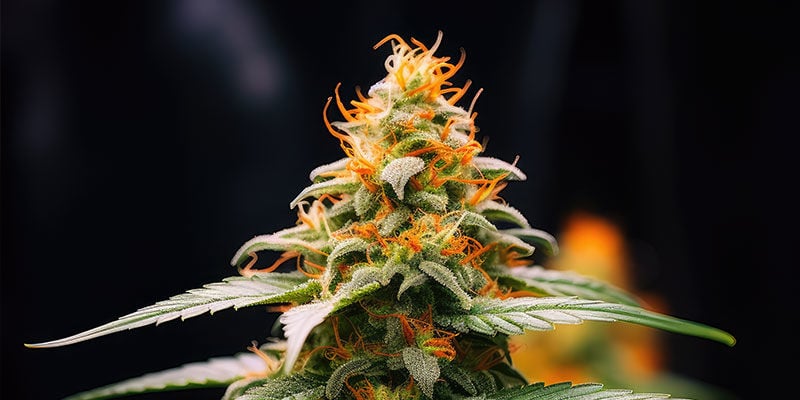
With no prizes for guessing where this particular strain comes from, Afghani is one of the oldest landraces on our list. This strain stays true to its indica origins and features dense buds with heavily resinous trichomes. Afghani is known to produce a long but enjoyable couch-locking high. Combined with its sweet, spicy, and skunky aromas, you've got the recipe for a sensational cannabis experience all around. Whether smoked or made into hash, there are plenty of ways to get the most out of Afghani.
If you're looking to check out Afghani for yourself, the feminized Afghani from Zamnesia Seeds and Afghani 1 from Sensi Seeds are both fantastic options. These strains reach manageable heights and churn out large yields, showcasing everything this charming indica has to offer. Dense and heavy buds will make you an Afghani advocate for life.
Hindu Kush
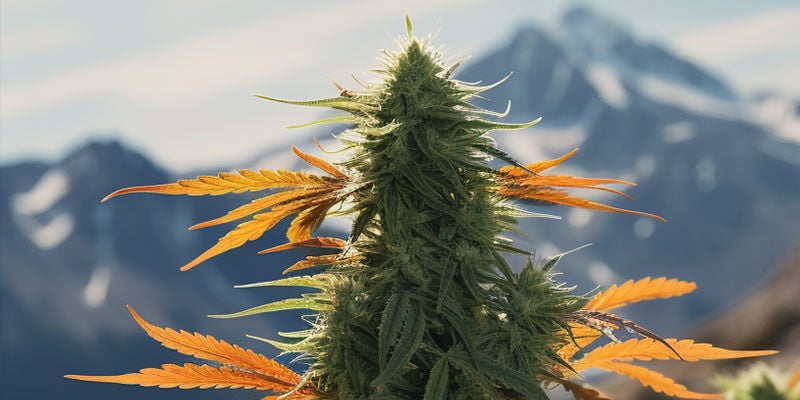
This particular landrace is named after the mountain range of the same name, thus giving birth to the term “kush”. This harsh location stretches over 800km between Pakistan and Afghanistan, making for hardy indica specimens. Hindu Kush made its way to the US in the 1970s, where it's been refined and given birth to many hybrids. Boasting a moreish terpene profile that's sweet and rich in spice, complete with musky undertones, this specimen is perfect for smoking, but also for creating hash.
Regarding effects, Hindu Kush offers deeply soothing sensations that make users feel upbeat yet relaxed. If you're looking to check out this particular landrace, one strain that deserves your attention is our feminized version of Hindu Kush. This easy-to-maintain strain is packed with all of the aforementioned flavours and aromas, and is thick with resin.
Colombian Gold
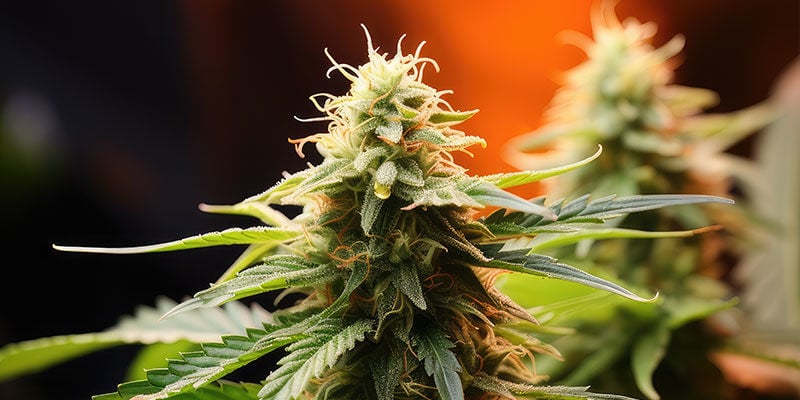
You've hit the jackpot with Colombian Gold! Cultivated for centuries, this sativa landrace hails from Santa Marta, where it has long soaked up the hot Colombian summers and perfectly adapted to the local conditions. In the 1960s, Colombian Gold hopped the border to the US, and has been harnessed to create many hybrids ever since; in fact, this strain is one of the forebears of Skunk #1, bred by Sam the Skunkman in the 1970s. Boasting a skunky lemon-lime aroma, Colombian Gold is packed with terpenes and is ideal for various consumption methods.
When it comes to effects, Colombian Gold shouldn't be confused with some illicit narcotics. This strain is ideal for daytime use, offering clear-headed focus and creative energy. Colombian Gold is easy to discover for yourself as Zamnesia offers its very own feminized version that will deliver all of the classic attributes of this storied landrace.
Thai

As the name suggests, Thai landrace strains hail from Thailand and are thought to have originally gained popularity in the US when soldiers returned from the Vietnam War with ample amounts of seeds in the 1960s and 70s. As a pure sativa, Thai offers an energetic, cerebral high ideal for any wake-and-bake session. A few tokes unlocks uplifting and creative sensations that are perfect for the productive stoner—so if you're struggling with an artistic block, a bowl of Thai could very well take you out of it.
You can experience Thai strains for yourself, as we have a couple of excellent cultivars crafted from these legendary genetics. Thai Fantasy is perfect for cultivating indoors and outdoors, and offers large harvests and great flavours. AK-420 is another resilient, high-yielding specimen that’s derived from Thai and bound to impress any grower—both novice and experienced.
Nepalese
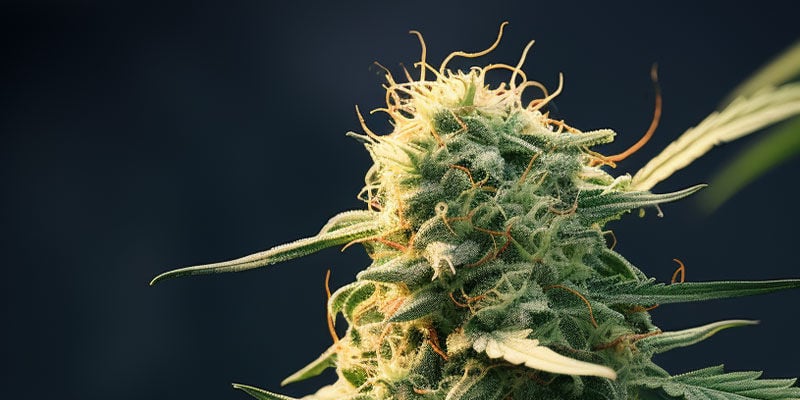
Nepalese landrace strains are native to the heart of the Himalayas in Nepal, just between China and India. This strain has been utilised for centuries; in fact, Nepal is thought to have one of the oldest traditions of cannabis cultivation and hash manufacturing. The environment has endowed Nepalese genetics with super earthy aromas with just a hint of berry sweetness. These strains are also known for showcasing massively relaxing and uplifting effects synonymous with indica varieties, with the growth profile of a sativa strain.
There's plenty to love about Nepalese landrace specimens, and plenty of hybrids to check out. The amazing Nepal Jam takes Nepalese genetics to a whole new level. This 100% sativa strain is sure to give you a lot of gorgeous buds, no matter where it's cultivated. But if you're looking for something with a little more punch, Vision Cookies is the Nepalese variety for you. This specimen produces big buds bearing 20% THC.
Seedshop
Click here to browse countless varieties of regular, feminized, and autoflowering cannabis seeds from the best banks in the world.
Aceh
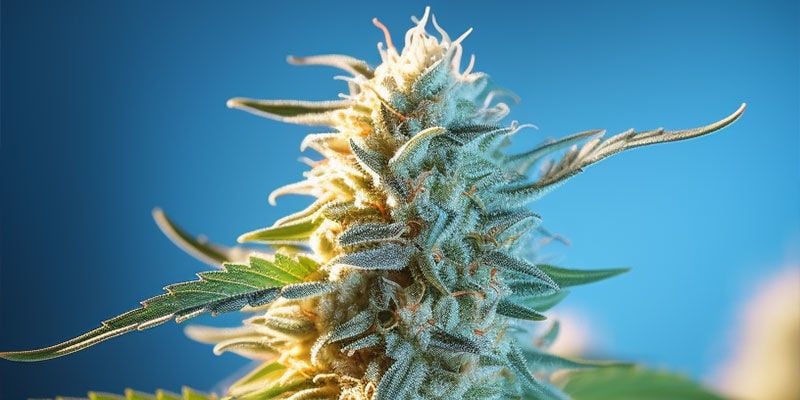
From the hills of Indonesia, Aceh, otherwise known as “Atjeh”, is a rare and pure 100% sativa. This variety boasts beautifully sweet and tropical aromas, with a punchy and sweet earthy flavour that will kickstart your high immediately. This extremely dank strain is renowned for providing euphoric and uplifting cerebral effects. However, with only around 10% THC on average, Aceh might not be the most potent landrace on our list, but the high has been described as pleasant and energetic.
Like most landrace strains, Aceh is incredibly robust. This plant has adapted to this region's hot and humid climate, features great resilience, and only takes roughly 10 weeks of flowering before it’s ready to harvest.
Let loose on landraces
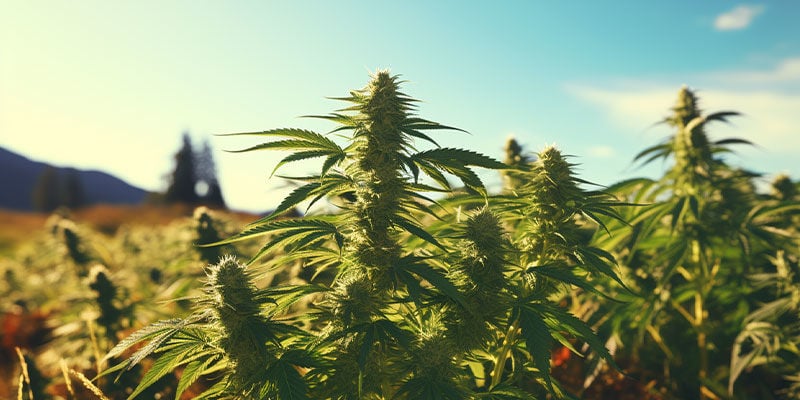
As you can see, landrace strains form the building blocks of many of the hybrid cultivars we enjoy today—and they’re still vital and impressive in their own right. Crossing a landrace with other cannabis genetics allows for many different flavours, aromas, and effects, but also a more refined and resilient growing experience. So if you're looking to get into landrace strains and their respective hybrids, head over to the Zamnesia seedshop and have your pick of some of the finest varieties available today.
-
 5 min
19 July 2021
The Origins Of OG Kush Cannabis
From Florida to the West Coast and into the hands of cannabis lovers all over the globe: that's the story of OG Kush in a nutshell. Read on for an in-depth look at one of the biggest names in...
5 min
19 July 2021
The Origins Of OG Kush Cannabis
From Florida to the West Coast and into the hands of cannabis lovers all over the globe: that's the story of OG Kush in a nutshell. Read on for an in-depth look at one of the biggest names in...
-
 4 min
20 September 2018
Understand The Difference Between Kush And Haze Strains
Get a better understanding on the difference between Kush and Haze cannabis plants. Learn about the influence of plant genetics on the marijuana experience, and some of the best Kush and Haze...
4 min
20 September 2018
Understand The Difference Between Kush And Haze Strains
Get a better understanding on the difference between Kush and Haze cannabis plants. Learn about the influence of plant genetics on the marijuana experience, and some of the best Kush and Haze...
-
 6 min
6 February 2018
Top 7 Original Cannabis Strains And Their Creators
In this article, we take a close look at the origins of 7 of the most iconic cannabis strains to ever hit the market. These include GG#4, Amnesia, Blueberry, Cheese, AK-47, Skunk, and Northern Lights.
6 min
6 February 2018
Top 7 Original Cannabis Strains And Their Creators
In this article, we take a close look at the origins of 7 of the most iconic cannabis strains to ever hit the market. These include GG#4, Amnesia, Blueberry, Cheese, AK-47, Skunk, and Northern Lights.
-
 3 min
17 January 2018
The Origin of GG4 Cannabis And The Top 3 GG4 Strains
If you're looking for the strongest strains on the market, then look no further than these three GG#4 strains. Packed with beneficial cannabinoids and overflowing with flavour, these varieties each...
3 min
17 January 2018
The Origin of GG4 Cannabis And The Top 3 GG4 Strains
If you're looking for the strongest strains on the market, then look no further than these three GG#4 strains. Packed with beneficial cannabinoids and overflowing with flavour, these varieties each...









 United States
United States

